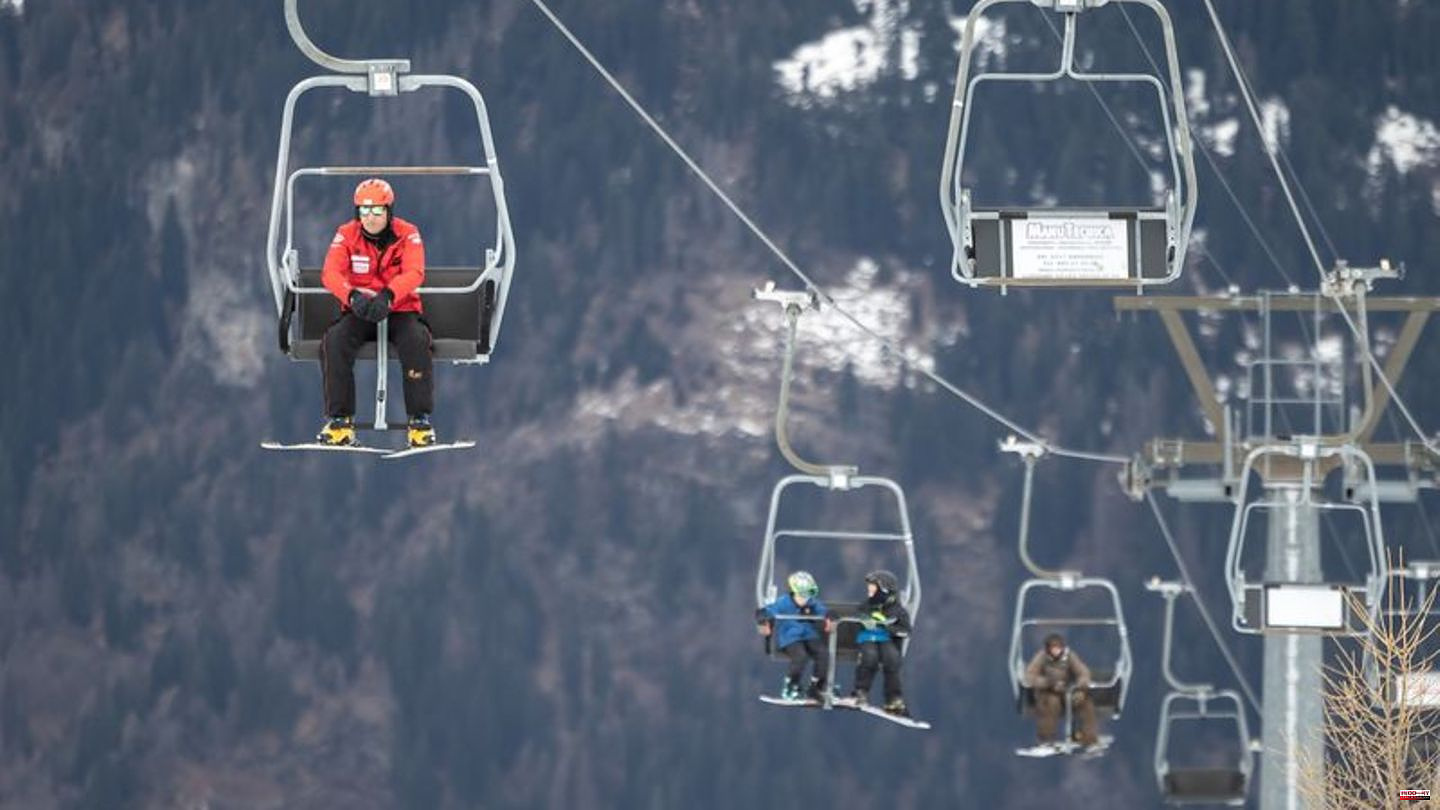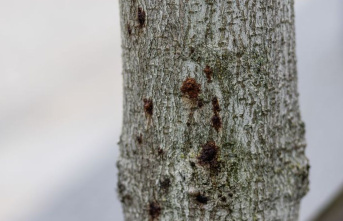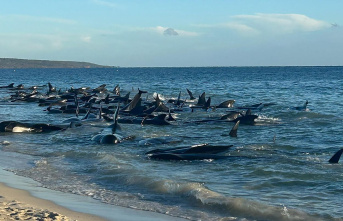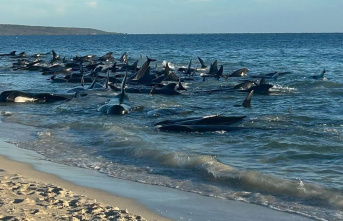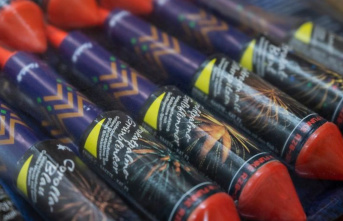Fresh snow and white landscapes in the first half of December: the ski season got off to a promising start despite the energy crisis and austerity measures.
For days, however, rain, wind and thaw have been worrying the lift operators. Some slopes are already closed - and it doesn't look like snow is coming anytime soon. The German Weather Service (DWD) is reporting extraordinarily mild temperatures for the next few days and a "record-breaking end of the year" on New Year's Eve in the foothills of the Alps, among other things, with almost up to 20 degrees.
It is said everywhere that winter sports enthusiasts are hot for skiing after two years of Corona. The demand is great. They were not deterred by higher prices and energy-saving measures such as unheated chairlift seats and the absence of radiant heaters in huts.
Winter mood does not arise
Winter mood but missing. Green landscapes all around. Even next to the slopes covered with snow cannons, the white splendor is often gone - it looks like it usually does in spring. Thaws around Christmas are not uncommon. But this year it is unusually mild. In the lowlands, the temperature rose to a spring-like 15 degrees. Only high up, for example at the Zugspitze (2962 meters), there was snow instead of rain.
In Reit im Winkl on the Winklmoosalm, home of former ski racer Rosi Mittermaier, the ski area has been closed since Christmas Eve. "Due to the persistent thaw and rainy weather" the season had to be paused. "We hope for snow soon and will keep you informed at this point," says the website. At the Großer Arber in the Bavarian Forest, the start of the season has just been postponed again - now "indefinitely". Also on the cross-country ski runs practically nothing works anymore.
Duration of ski operation uncertain
It is not certain to what extent skiing will be possible until the end of the holidays, says the spokeswoman for the Upper Bavarian Alps Plus areas of Brauneck, Spitzingsee, Wallberg and Sudelfeld, Antonia Asenstorfer. Things are not looking so bad at Spitzingsee and Sudelfeld at the moment. "Sometimes warm temperatures don't bother the slopes that much. But the rain and the wind bother them," she says. "It has been raining heavily. We are looking at what we can get from day to day."
In other winter sports areas, too, people look anxiously at the weather forecast. The lift operators agree that without the controversial snow cannons, a ski season would no longer be possible. Because of the high temperatures, it was not even possible to make snow at night. Environmentalists had warned that snow cannons would not save the operation of lower areas in the long run and called for a complete abandonment of snowmaking during the energy crisis.
Bavaria's Economics Minister Hubert Aiwanger does not see the ski season in Bavaria in danger. "Thanks to investments in modern, energy-saving cable cars and targeted snowmaking, Bavaria has had a dream start to the winter sports season," said the head of the Free Voters of the German Press Agency in Munich. Around a third of winter sales are currently generated in the ski areas. "This year's income was secured by technical snowmaking, as well as many jobs in hotels, in gastronomy, in local retail etc." The "constant nagging of climate extremists and Greens" against the cable car funding program and technical snowmaking have thus proven to be wrong.
Optimism in the Sauerland
In Winterberg in Sauerland, where the mountain stations are at an altitude of up to 840 meters, the snow cover is also suffering. 35 lifts were still running in the region - after more than 40 before Christmas. "We are sure that there will be winter sports over the turn of the year," said the spokeswoman for the Sauerland winter sports arena, Susanne Schulten. But the amount depends on the weather. Smaller areas would not have opened at all, larger ones would have created depots made of machine snow before Christmas. These would now be used. "It's very complex."
The managing director of Bergbahnen Sudelfeld, Egid Stadler, remains optimistic. "We certainly don't have to close." About 60 to 70 percent of the slopes are open, the main runs are "in good shape". "We have no problem with the snow-covered slopes." But: "Without snowmaking, we would have been closed." Thaw around Christmas is also known from the past. However, climate change is becoming increasingly evident.
Higher temperatures have been increasing on average for decades, said Martin Schwienbacher from the DWD. The weather at Christmas fits into the statistical context that documents climate change.
With the Bavarian Zugspitzbahn, however, there are no major concerns. Germany's highest ski area on the Zugspitze has always managed without artificial snow. In Garmisch-Partenkirchen the other pistes are on the north side. "In the last few weeks it has been extremely cold, these were ideal conditions for snowmaking," said spokeswoman Verena Tanzer. This snow and natural snow now form a basis that can withstand the mild temperatures well. "We are well prepared for the Christmas holiday season."

